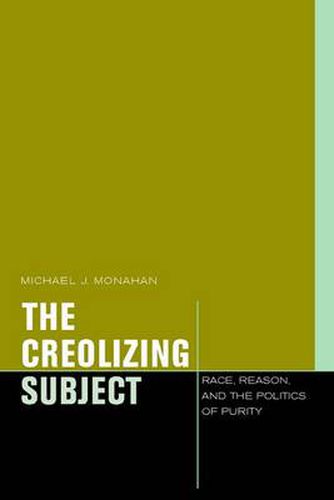Readings Newsletter
Become a Readings Member to make your shopping experience even easier.
Sign in or sign up for free!
You’re not far away from qualifying for FREE standard shipping within Australia
You’ve qualified for FREE standard shipping within Australia
The cart is loading…






How does our understanding of the reality (or lack thereof ) of race as a category of being affect our understanding of racism as a social phenomenon, and vice versa? How should we envision the aims and methods of our struggles against racism?
Traditionally, the Western political and philosophical tradition held that true social justice points toward a raceless future-that racial categories are themselves inherently racist, and a sincere advocacy for social justice requires a commitment to the elimination or abolition of race altogether. This book focuses on the underlying assumptions that inform this view of race and racism, arguing that it is ultimately bound up in a politics of purity -an understanding of human agency, and reality itself, as requiring all-or-nothing categories with clear and unambiguous boundaries. Racism, being organized around a conception of whiteness as the purest manifestation of the human, thus demands a constant policing of the boundaries among racial categories.
Drawing upon a close engagement with historical treatments of the development of racial categories and identities, the book argues that races should be understood not as clear and distinct categories of being but rather as ambiguous and indeterminate (yet importantly real) processes of social negotiation. As one of its central examples, it lays out the case of the Irish in seventeenth-century Barbados, who occasionally united with black slaves to fight white supremacy-and did so as white people, not as nonwhites who later became white when they capitulated to white supremacy.
Against the politics of purity, Monahan calls for the emergence of a creolizing subjectivity that would place such ambiguity at the center of our understanding of race. The Creolizing Subject takes seriously the way in which racial categories, in all of their variety and ambiguity, situate and condition our identity, while emphasizing our capacity, as agents, to engage in the ongoing contestation and negotiation of the meaning
and significance of those very categories.
$9.00 standard shipping within Australia
FREE standard shipping within Australia for orders over $100.00
Express & International shipping calculated at checkout
How does our understanding of the reality (or lack thereof ) of race as a category of being affect our understanding of racism as a social phenomenon, and vice versa? How should we envision the aims and methods of our struggles against racism?
Traditionally, the Western political and philosophical tradition held that true social justice points toward a raceless future-that racial categories are themselves inherently racist, and a sincere advocacy for social justice requires a commitment to the elimination or abolition of race altogether. This book focuses on the underlying assumptions that inform this view of race and racism, arguing that it is ultimately bound up in a politics of purity -an understanding of human agency, and reality itself, as requiring all-or-nothing categories with clear and unambiguous boundaries. Racism, being organized around a conception of whiteness as the purest manifestation of the human, thus demands a constant policing of the boundaries among racial categories.
Drawing upon a close engagement with historical treatments of the development of racial categories and identities, the book argues that races should be understood not as clear and distinct categories of being but rather as ambiguous and indeterminate (yet importantly real) processes of social negotiation. As one of its central examples, it lays out the case of the Irish in seventeenth-century Barbados, who occasionally united with black slaves to fight white supremacy-and did so as white people, not as nonwhites who later became white when they capitulated to white supremacy.
Against the politics of purity, Monahan calls for the emergence of a creolizing subjectivity that would place such ambiguity at the center of our understanding of race. The Creolizing Subject takes seriously the way in which racial categories, in all of their variety and ambiguity, situate and condition our identity, while emphasizing our capacity, as agents, to engage in the ongoing contestation and negotiation of the meaning
and significance of those very categories.